Wilkinson Early Childhood Center serves 290 students in grades Prekindergarten-2.
The percentage of students achieving proficiency in math is ≤20% (which is lower than the Missouri state average of 54%). The percentage of students achieving proficiency in reading/language arts is 21-39% (which is lower than the Missouri state average of 55%).
The student:teacher ratio of 12:1 is equal to the Missouri state level of 12:1.
Minority enrollment is 67% of the student body (majority Black), which is higher than the Missouri state average of 32% (majority Black).
Quick Stats (2025)
- School Type: Magnet School
- Grades: Prekindergarten-2
- Enrollment: 290 students
- Student:Teacher Ratio: 12:1
- Minority Enrollment: 67%
- Math Proficiency: ≤20%
- Reading Proficiency: 21-39%
- Source: National Center for Education Statistics (NCES), MO Dept. of Education
Top Rankings
Wilkinson Early Childhood Center ranks among the top 20% of public schools in Missouri for:
Category
Attribute
Diversity
Percent Eligible For Free Lunch
School Overview
Wilkinson Early Childhood Center's student population of 290 students has stayed relatively flat over five school years.
The teacher population of 25 teachers has grown by 8% over five school years.
School Type
Grades Offered
Grades Prekindergarten-2
Total Students
290 students
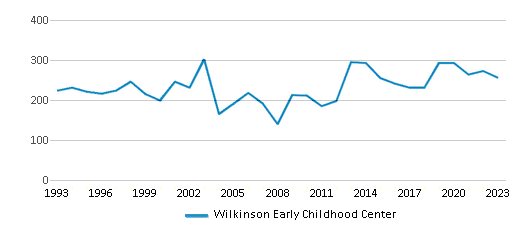
Gender %
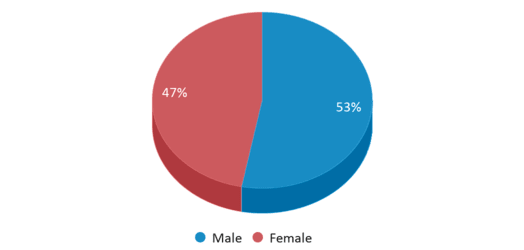
Total Classroom Teachers
25 teachers
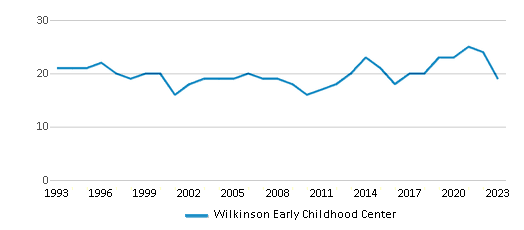
Students by Grade
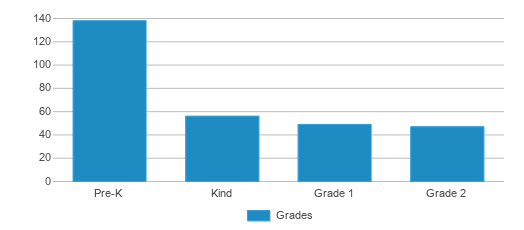
School Rankings
The diversity score of Wilkinson Early Childhood Center is 0.55, which is more than the diversity score at state average of 0.51. The school's diversity has stayed relatively flat over five school years.
Math Test Scores (% Proficient)
(10-11)≤20%
54%
Reading/Language Arts Test Scores (% Proficient)
(10-11)21-39%
55%
Student : Teacher Ratio
12:1
12:1
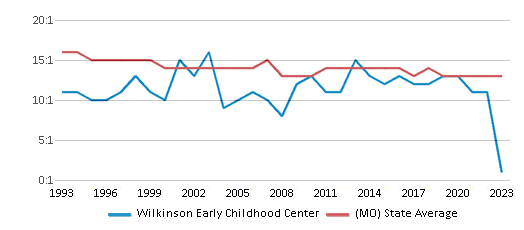
American Indian
1%
n/a
Asian
4%
2%
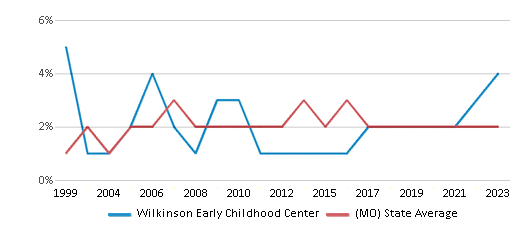
Hispanic
3%
8%
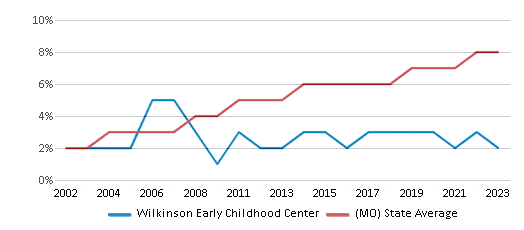
Black
59%
15%
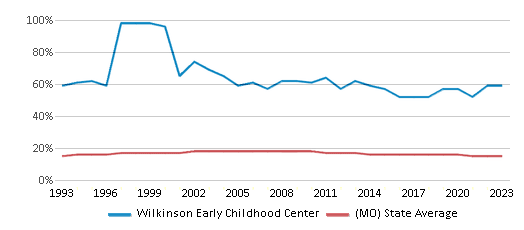
White
33%
68%
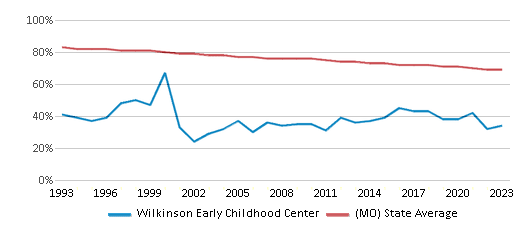
Hawaiian
n/a
1%
Two or more races
n/a
6%
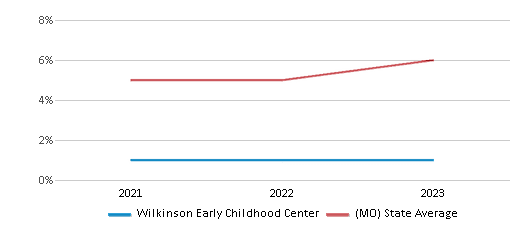
All Ethnic Groups
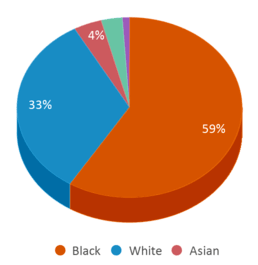
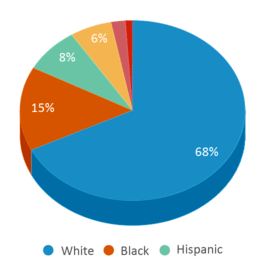
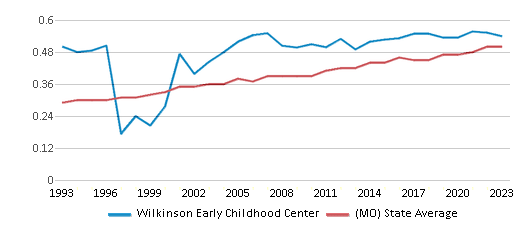
Eligible for Free Lunch
100%
42%
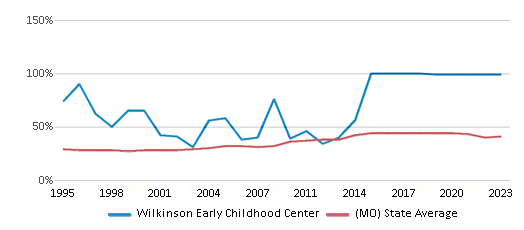
Eligible for Reduced Lunch (13-14)
7%
7%
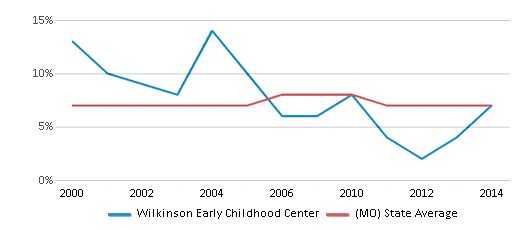
School Statewide Testing
School District Name
Source: National Center for Education Statistics (NCES), MO Dept. of Education
Profile last updated: 02/09/2025
Frequently Asked Questions
What schools are Wilkinson Early Childhood Center often compared to?
Wilkinson Early Childhood Centeris often viewed alongside schools like Mason Elementary School by visitors of our site.
What percent of students have achieved state testing proficiency in math and reading?
≤20% of students have achieved math proficiency (compared to the 54% MO state average), while 21-39% of students have achieved reading proficiency (compared to the 55% MO state average).
How many students attend Wilkinson Early Childhood Center?
290 students attend Wilkinson Early Childhood Center.
What is the racial composition of the student body?
59% of Wilkinson Early Childhood Center students are Black, 33% of students are White, 4% of students are Asian, 3% of students are Hispanic, and 1% of students are American Indian.
What is the student:teacher ratio of Wilkinson Early Childhood Center?
Wilkinson Early Childhood Center has a student ration of 12:1, which is equal to the Missouri state average of 12:1.
What grades does Wilkinson Early Childhood Center offer ?
Wilkinson Early Childhood Center offers enrollment in grades Prekindergarten-2
What school district is Wilkinson Early Childhood Center part of?
Wilkinson Early Childhood Center is part of St. Louis City School District.
In what neighborhood is Wilkinson Early Childhood Center located?
Wilkinson Early Childhood Center is located in the Franz Park neighborhood of Saint Louis, MO.
School Reviews
5 6/10/2017
My son had his first year as a Wilkie Bear this year, and we have loved our experience! He will be returning next year and I have no doubt that it will be another great year. His teachers are very caring, and the school has a wonderful community feel. They have the latest technology, so I am never worried that he isn't learning a ton. I highly recommend Wilkinson ECC!
5 10/24/2009
When we first toured the school, the staff was very warm and friendly. Most of the teachers there have master's degrees. They have a more positive approach to discipline, too, it seemed. They also appeared to be really following Project Construct, from what we saw in the classrooms. The tour guide, Diane Taylor, told us about the two curriculums, Open Court (which they appear to be phasing out) and Project Construct. When I asked her to explain, she went into one of the preschool rooms and the teacher came over and explained it all pretty articulately and she also said that with preschool they try to make it play oriented because their natural state is play (which goes along with my own personal philosophy). Old, well-kept building with a new playground on a quiet, tucked-away street in Dogtown. Our child has been going to school there now for over a year and is very happy, as our we. The PTO is also very involved and gets things done. Highly recommended St. Louis City Magnet School!
Review Wilkinson Early Childhood Center. Reviews should be a few sentences in length. Please include any comments on:
- Quality of academic programs, teachers, and facilities
- Availability of music, art, sports and other extracurricular activities
Recent Articles

What Is A Charter School?
Explore the world of charter schools in this comprehensive guide. Learn about their history, how they operate, and the pros and cons of this educational innovation. Discover key facts about charter schools, including admission policies, demographics, and funding, as well as what to look for when considering a charter school for your child.

10 Reasons Why High School Sports Benefit Students
Discover the 10 compelling reasons why high school sports are beneficial for students. This comprehensive article explores how athletics enhance academic performance, foster personal growth, and develop crucial life skills. From improved fitness and time management to leadership development and community representation, learn why participating in high school sports can be a game-changer for students' overall success and well-being.

February 05, 2025
Understanding the U.S. Department of Education: Structure, Impact, and EvolutionWe explore how the Department of Education shapes American education, from its cabinet-level leadership to its impact on millions of students, written for general audiences seeking clarity on this vital institution.







